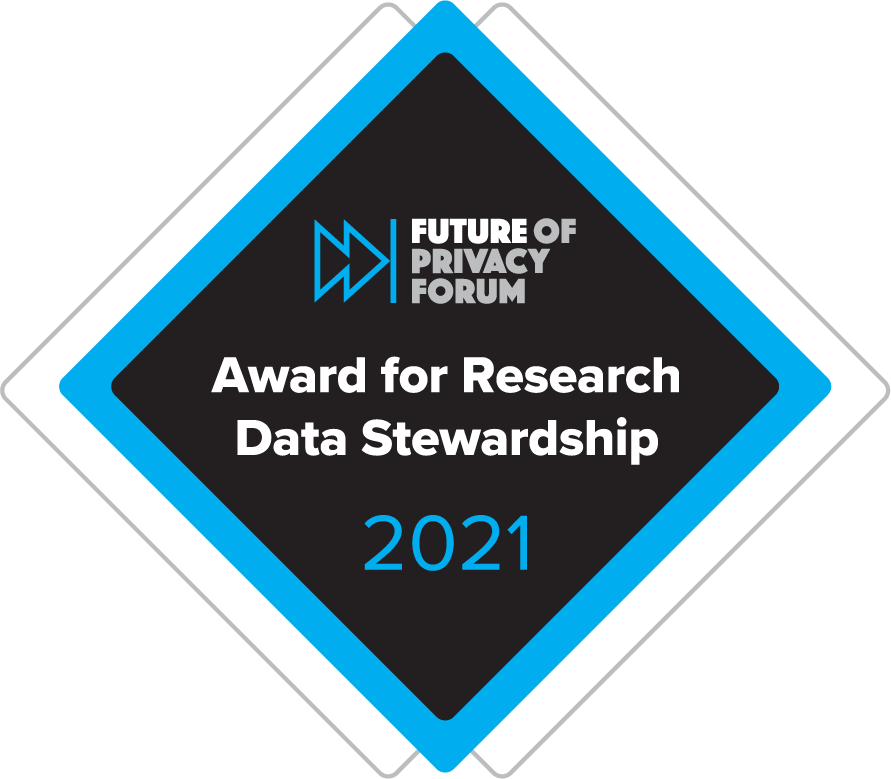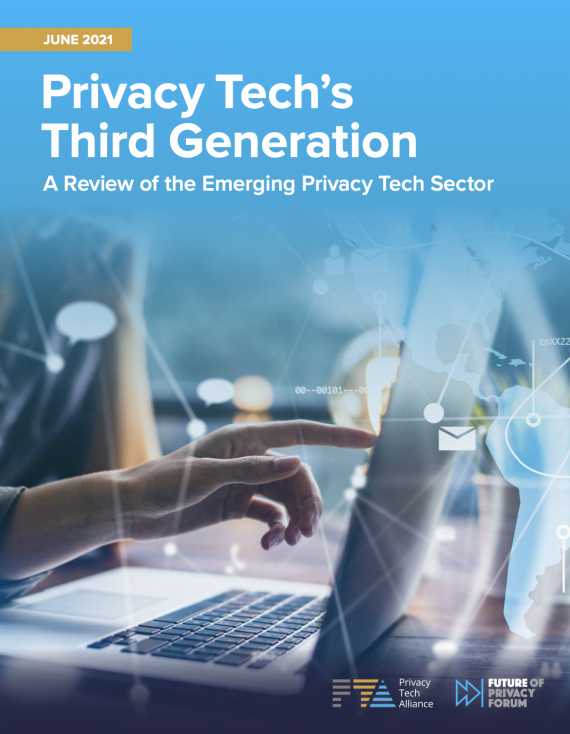
Event Recap: Dublin Privacy Symposium 2021, Designing for Trust: Enhancing Transparency & Preventing User Manipulation
Key Takeaways The biggest challenge to increase UX transparency may be encouraging people to make deliberate decisions from a UX design perspective. Even designers’ color and shape choices in UI can be subtle ‘dark patterns’ that might even prevent, e.g., color-blind users from understanding the options at hand. Organizations should ask themselves whether they should […]

Google: COVID-19 Community Mobility Reports
Google has been recognized with the second-annual FPF Award for Research Data Stewardship for its work to produce, aggregate, anonymize, and share data on community movement during the COVID-19 pandemic. Google’s Community Mobility Reports go through a robust anonymization process that employs differential privacy techniques to ensure that personal data, including an individual’s location, movement, […]

Research from Stanford Medicine and Empatica, Inc: Early Detection of COVID-19 Using Empatica Smartwatch Data
Tejaswini Mishra, PhD, Michael Snyder, PhD, Erika Mahealani Hunting, Alessandra Celli, Arshdeep Chauhan, and Jessi Wanyi Li from the Stanford University School of Medicine’s Department of Genetics, and Empatica Inc. are the recipients of the second-annual FPF Award for Research Data Stewardship. The collaboration between the research team from Stanford Medicine and Empatica, a medical […]

FPF Issues Award for Research Data Stewardship to Stanford Medicine & Empatica, Google & Its Academic Partners
WASHINGTON, DC (June 29, 2021) – The second-annual FPF Award for Research Data Stewardship honors two teams of researchers and corporate partners for their commitment to privacy and ethical uses of data in their efforts to research aspects of the COVID-19 pandemic. One team is a collaboration between Stanford Medicine researchers led by Tejaswini Mishra, PhD, Professor […]

New FPF Report Highlights Privacy Tech Sector Evolving from Compliance Tools to Platforms for Risk Management and Data Utilization
As we enter the third phase of development of the privacy tech market, purchasers are demanding more integrated solutions, product offerings are more comprehensive, and startup valuations are higher than ever, according to a new report from the Future of Privacy Forum and Privacy Tech Alliance. These factors are leading to companies providing a wider […]

Automated Decision-Making Systems: Considerations for State Policymakers
In legislatures across the United States, state lawmakers are introducing proposals to govern the uses of automated decision-making systems (ADS) in record numbers. In contrast to comprehensive privacy bills that would regulate collection and use of personal information, automated decision-making system (ADS) bills in 2021 specifically seek to address increasing concerns about racial bias or […]

FPF Ethical Data Use Committee will Support Research Relying on Private Sector Data
FPF has launched an independent ethical review committee to provide oversight for research projects that rely upon sharing of corporate data with researchers. Whether researchers are studying the impact of platforms on society, supporting evidence based policymaking, or understanding issues from COVID to climate change, personal data held by companies is increasingly essential to advancing scientific knowledge.

FPF Welcomes New Members to the Youth & Education Privacy Team
We are thrilled to announce two new members of FPF’s Youth & Education Privacy team. The new staff – Joanna Grama and Jim Siegl – will help expand FPF’s technical assistance and training, resource creation and distribution, and state and federal legislative tracking. You can read more about Joanna and Jim below. Please join us in […]

A New Era for Japanese Data Protection: 2020 Amendments to the APPI
The recent amendments to Japan’s data protection law contain a number of new provisions certain to alter – and for many foreign businesses, transform – the ways in which companies conduct business in or with Japan.

Privacy Impact Assessment Policies Help Cities Use and Share Data Responsibly with their Communities
As the world urbanizes, local governments are turning to “Smart City” initiatives and the data they generate to more effectively manage transportation systems, support real-time infrastructure maintenance, automatically administer public services, enable transparent governance and open data, and support emergency services in public areas. Data held by public and private organizations have the potential to […]
